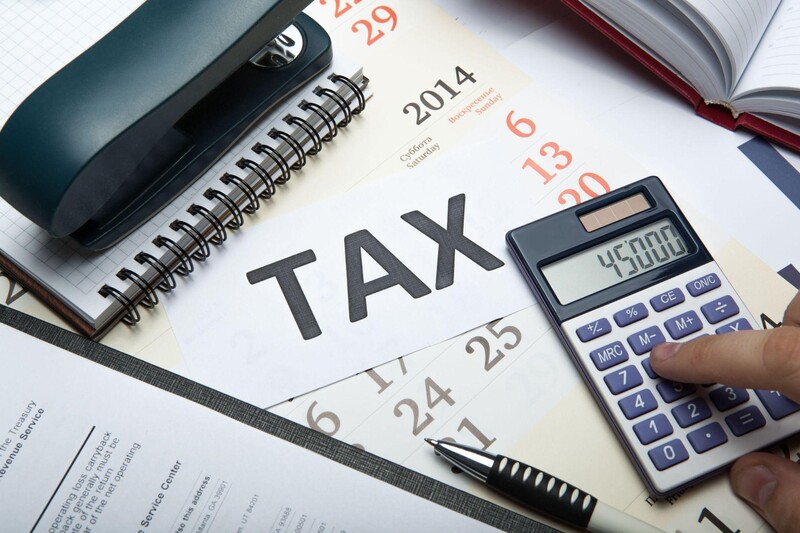
Unveiling the taxes in Vietnam: Beyond the Basic Types
The bustling streets of Vietnam are a magnet for international talent. But for expats and individuals venturing into the Vietnamese market, navigating the taxes in Vietnam can be daunting. This guide delves deeper, unveiling the various taxes applicable to expats and businesses operating in Vietnam.

Why do expats need to pay taxes in Vietnam?
Expats (short for expatriates) need to pay taxes in Vietnam for a similar reason everyone else with taxable income does: to contribute to the government’s revenue and fund public services. Here’s a breakdown of the rationale:
Taxation for Public Goods: Taxes are the primary way governments raise money to provide essential public services like infrastructure (roads, bridges), education, healthcare, and national security. Everyone who benefits from these services should contribute financially.
Fairness and Sustainability: A fair tax system ensures everyone shoulders a share of the financial burden. If expats earning income in Vietnam didn’t pay taxes, it would place a heavier load on Vietnamese citizens and limit the government’s ability to provide services for everyone.
Tax Residency vs. Citizenship: Vietnam’s tax system primarily focuses on tax residency rather than citizenship. This means anyone who spends a significant amount of time in Vietnam and earns income there is considered a tax resident and subject to taxes on that income.
Benefits of a Functioning Tax System:
Improved Infrastructure: Tax revenue helps build and maintain roads, bridges, public transportation systems, and other essential infrastructure that benefits everyone, including expats.
Quality Education and Healthcare: Taxes contribute to funding public schools, hospitals, and social programs, ensuring a healthy and educated population.
Safety and Security: Tax revenue supports law enforcement, national defense, and emergency services, creating a safer environment for all residents, including expats.
Types of taxes in Vietnam that expats need to pay

The specific taxes expats need to pay in Vietnam depend on their residency status and income source. Here’s a breakdown:
Tax Residency:
- Resident vs. Non-Resident: Vietnam’s tax system classifies individuals as residents or non-residents based on how long they stay in the country. Generally, if you spend 183 days (or more) within a calendar year or 12 consecutive months in Vietnam, you’re considered a tax resident.
Types of Taxes in Vietnam for Expats:
Personal Income Tax (PIT): This is the main tax for expats who are considered Vietnamese tax residents. PIT is levied on their worldwide income, including salary, bonuses, rental income, and interest income. Tax rates are progressive, meaning they increase as your income rises.
Non-Resident Tax: Expats who are not considered tax residents only pay tax on income sourced from Vietnam. This is typically taxed at a flat rate (around 20%) on employment income or specific rates for other income types.
Guidelines for Paying Taxes in Vietnam:
Tax Registration: Resident expats need to register for tax with the local tax authority. Your employer might handle this process for you, but it’s advisable to confirm.
Tax Withholding: For salaried employees, the employer usually withholds PIT from their salary and remits it to the tax authorities.
Tax Filing and Payment: Resident expats are responsible for filing annual tax returns with the Vietnamese tax authority. The deadline for filing is typically around March 31st of the following year. Non-residents may need to file a tax return depending on their income source.
Resources for Further Information:
General Department of Taxation website (General Department of Taxation of Vietnam): This is the official website of the Vietnamese tax authority. It provides information on tax registration, tax forms, and filing procedures. (Note: The website might be in Vietnamese) Search for “General Department of Taxation of Vietnam” or use a Vietnamese search engine.
Tax Consultants: Consulting with a tax advisor or accountant familiar with Vietnamese tax regulations is highly recommended. They can guide you through the specific requirements based on your residency status and income sources.
Reliable Sources for Finding Tax Consultants:

International accounting firms: Big Four firms like PricewaterhouseCoopers (PwC), KPMG, Ernst & Young (EY), and Deloitte often have offices in Vietnam and specialize in expat tax services.
Vietnamese tax law associations: The Vietnam Chamber of Commerce and Industry (VCCI) or the Vietnamese Tax Consultants Association might have listings of tax consultants with experience in expat taxation.
Expat forums and online communities: Expat communities in Ho Chi Minh City might have recommendations from other expats who have used tax consultants.
Tips for Choosing a Tax Consultant:
Experience with expats: Look for a consultant who has experience working with expats in Vietnam and understands the specific tax challenges they face.
Qualifications and certifications: Ensure the consultant has the necessary qualifications and professional certifications.
Language skills: If Vietnamese isn’t your primary language, choose a consultant who is fluent in English or your preferred language.
Fees and service offerings: Get quotes from several consultants and compare their fees and the services they offer.
Client testimonials and reviews: Read online reviews or ask for client testimonials to get a sense of the consultant’s reputation and service quality.
By following these tips and utilizing the resources mentioned, you should be able to find a qualified and experienced tax consultant in Ho Chi Minh City to assist you with your Vietnamese tax obligations.
The world of Vietnamese taxes might seem intricate at first glance, but with the knowledge gleaned from this guide, you’re well on your way to navigating the system effectively. Remember, staying informed and seeking professional guidance are key to ensuring tax compliance. With this newfound understanding, you can confidently embark on your Vietnamese business venture or expat experience, focusing on what truly matters – achieving your goals and thriving in this exciting market.
See also:
